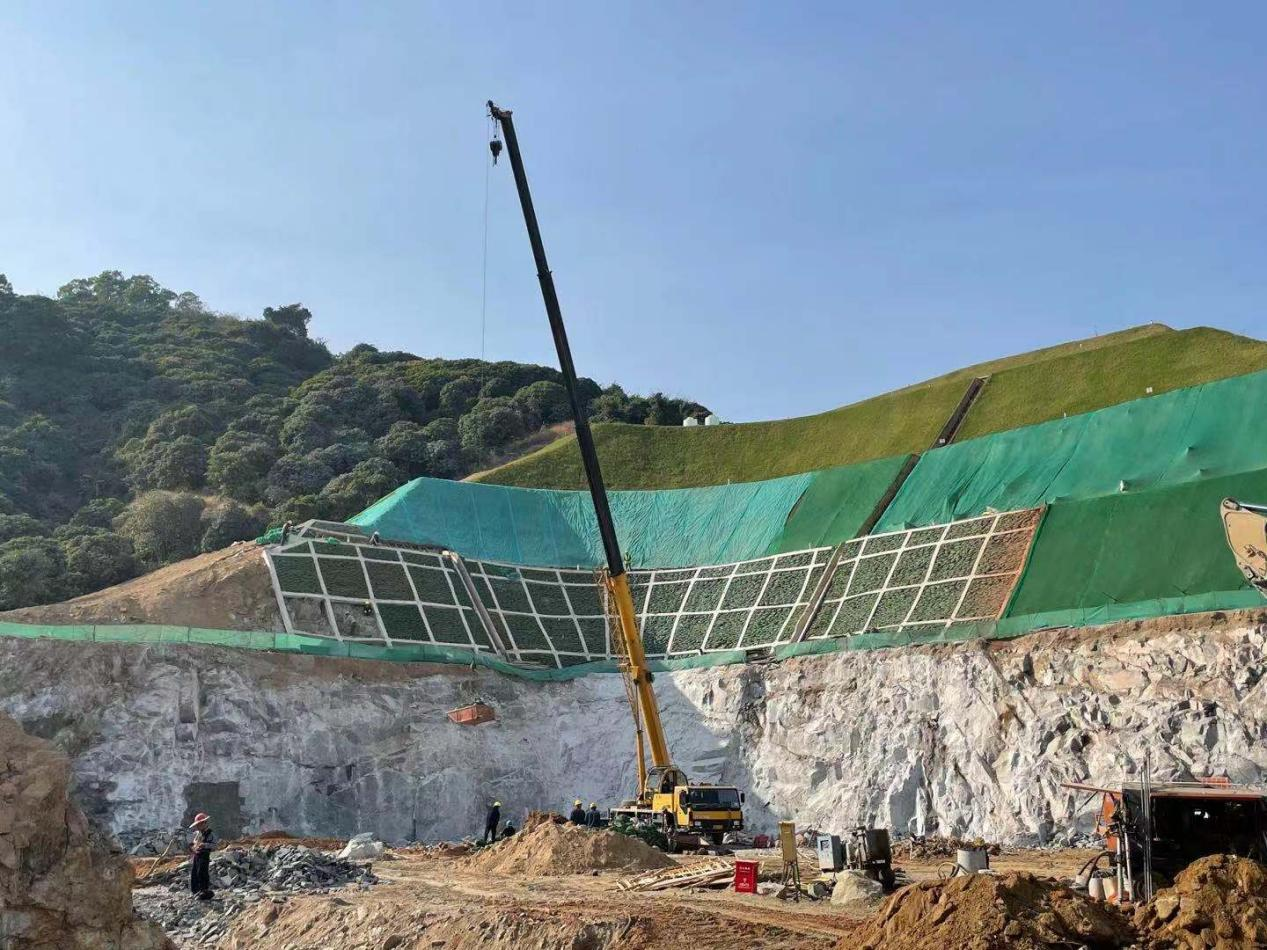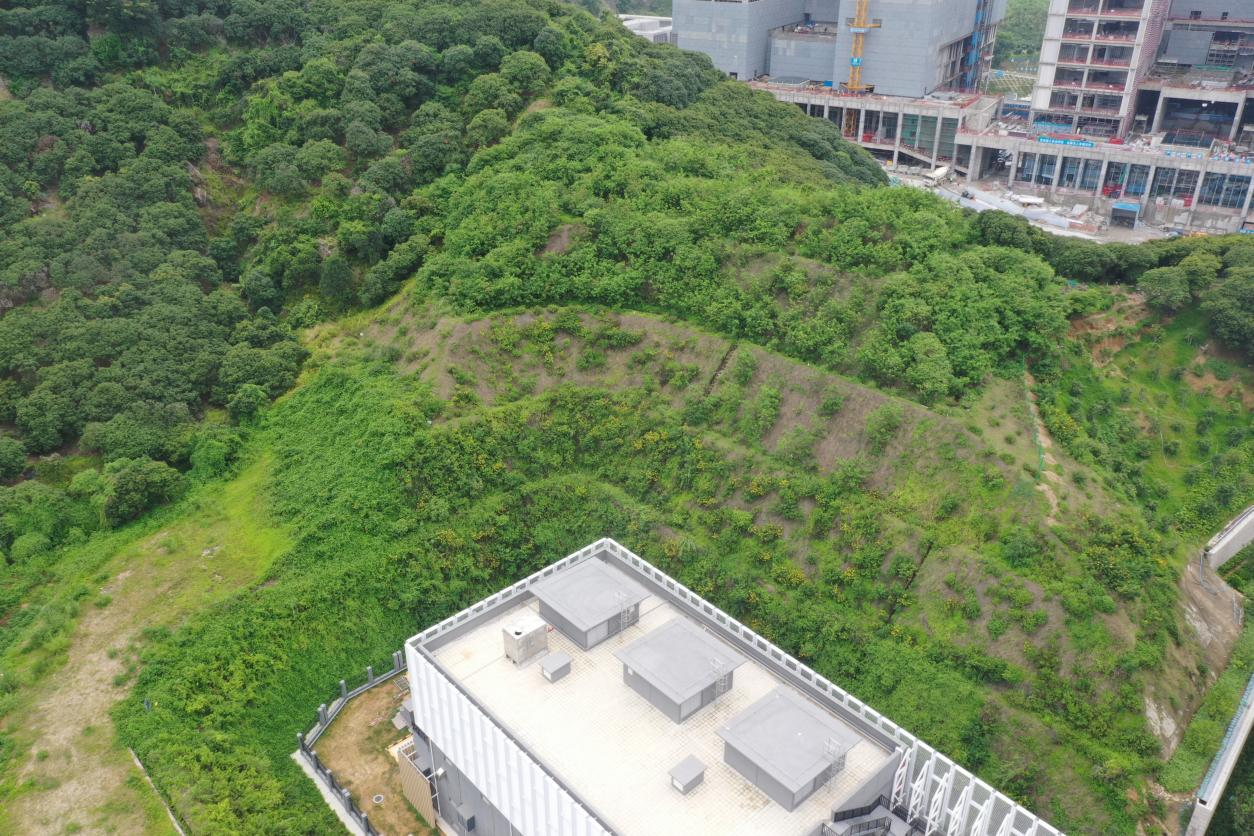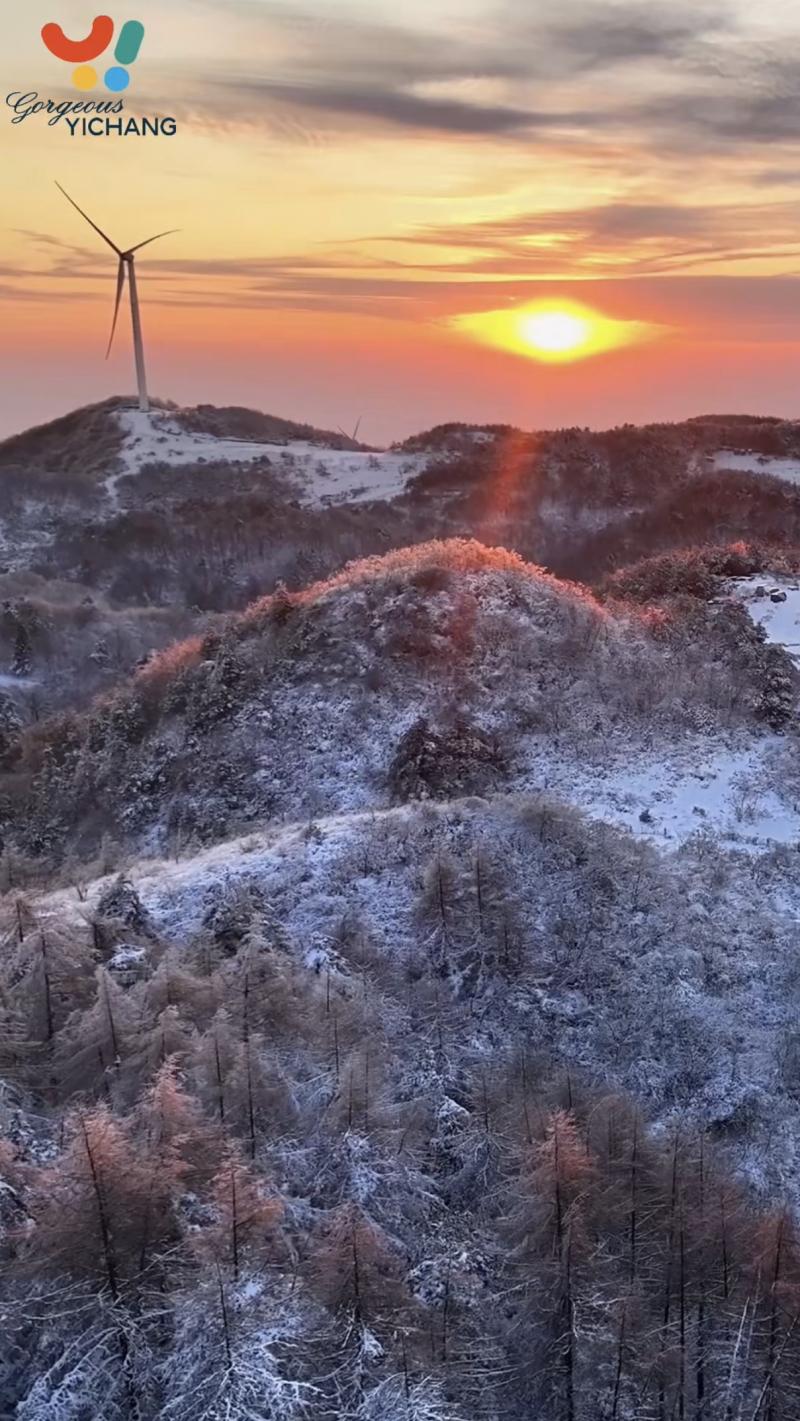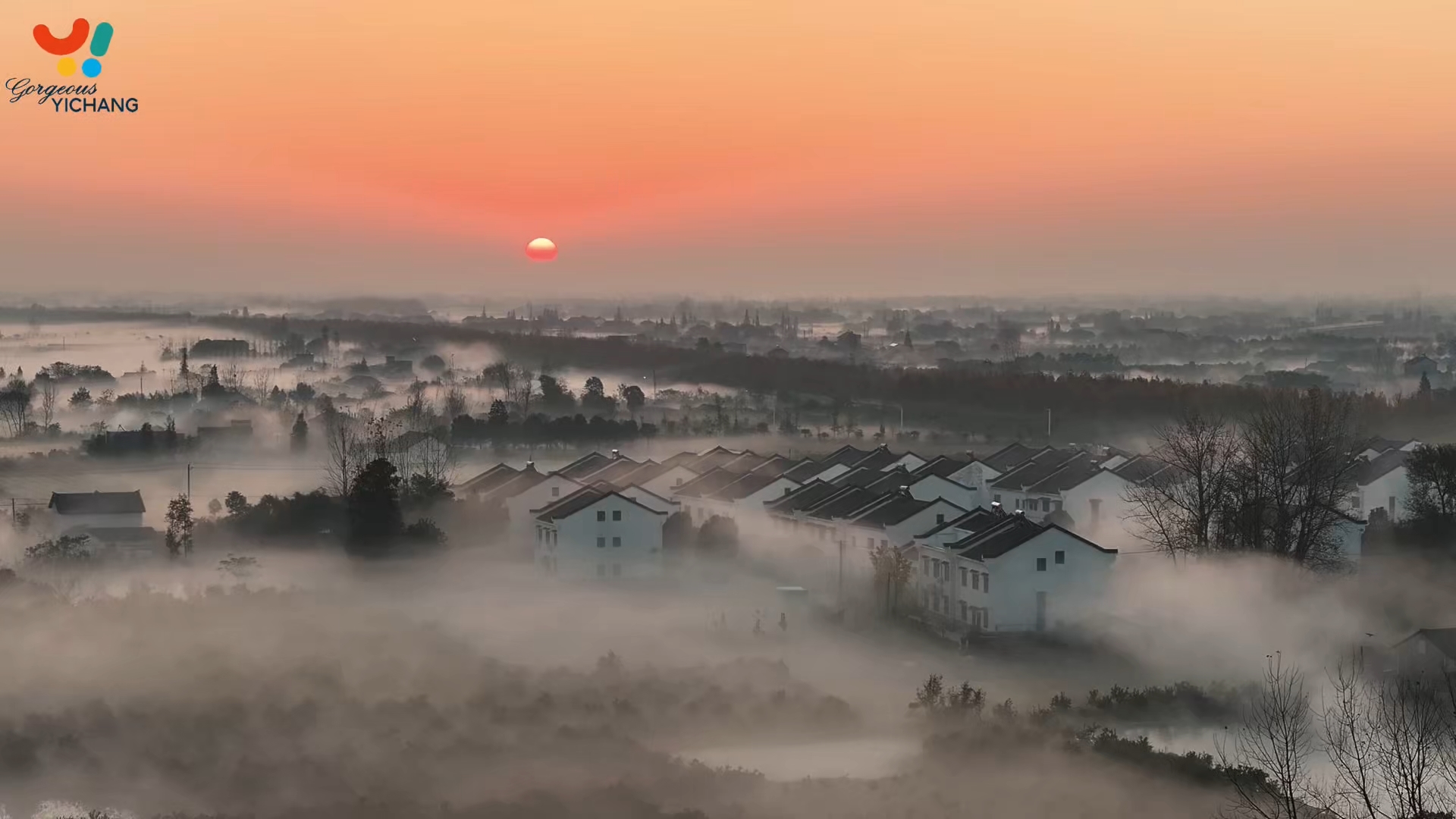New technologies restore ecology around Three Gorges Reservoir
2024-03-11 17:03:14
By Yan Wanqin, Yichang International Communication Studio
A Yichang university has developed a series of land and deep slope protection technologies that have been included in the Ministry of Science and Technology's national promotion list.
The College of Civil Engineering and Architecture at China Three Gorges University initially developed these technologies to preserve the steep slopes around the Three Gorges Reservoir.
According to Xu Wennian, the leader of the technology development team and a professor at the college: "Our ecological restoration technologies use cement as a base material that adheres to steep rocky slopes, preventing it from being washed away by heavy rain. Additionally, we have invented a habitat substrate conditioner that creates an ideal environment for plant growth on the cement."
By including these technologies in the National Green and Low-Carbon Advanced Technology Achievements Catalogue, the ministry encourages companies, government agencies, and investment funds to utilize them for low-carbon transition projects.
A Yichang university has developed a series of land and deep slope protection technologies that have been included in the Ministry of Science and Technology's national promotion list.
The College of Civil Engineering and Architecture at China Three Gorges University initially developed these technologies to preserve the steep slopes around the Three Gorges Reservoir.
According to Xu Wennian, the leader of the technology development team and a professor at the college: "Our ecological restoration technologies use cement as a base material that adheres to steep rocky slopes, preventing it from being washed away by heavy rain. Additionally, we have invented a habitat substrate conditioner that creates an ideal environment for plant growth on the cement."
By including these technologies in the National Green and Low-Carbon Advanced Technology Achievements Catalogue, the ministry encourages companies, government agencies, and investment funds to utilize them for low-carbon transition projects.

Xu Wennian, a professor at China Three Gorges University's College of Civil Engineering and Architecture. Photo courtesy of the College of Civil Engineering and Architecture of China Three Gorges University.
The Three Gorges Reservoir area is surrounded by numerous high and steep exposed slopes that have poor stability and are susceptible to geological disasters, including landslides and rockfall caused by heavy rainfall.
In 1997, Xu started researching ecological slope protection. Since then, Xu's team has finished three phases of research on slope greening, ecosystem, and sustainability. They have developed ecological restoration technologies like Vegetation Concrete Base Spraying, Vegetative Cement-Soil Slope Habitat Construction, and Erosion Preventing Base Material for Slope Protection.


In 1997, Xu started researching ecological slope protection. Since then, Xu's team has finished three phases of research on slope greening, ecosystem, and sustainability. They have developed ecological restoration technologies like Vegetation Concrete Base Spraying, Vegetative Cement-Soil Slope Habitat Construction, and Erosion Preventing Base Material for Slope Protection.


Before (above) and after (below) comparison of a slope support project guided by Xu's team. Photo from the College of Civil Engineering and Architecture of China Three Gorges University.
These new technologies have filled the gap in ecological protection for high and steep concrete slopes in China. They have also addressed the issues of ecological restoration and engineering safety during construction.
Currently, these technologies have been commercialized, with 32 companies, universities, and research institutes forming an industry chain around them.
The technologies have been applied in various fields across China, including hydropower, public transportation, civil engineering projects and mining. They have covered over 20 provinces in the country.
The technologies have been applied in various fields across China, including hydropower, public transportation, civil engineering projects and mining. They have covered over 20 provinces in the country.






